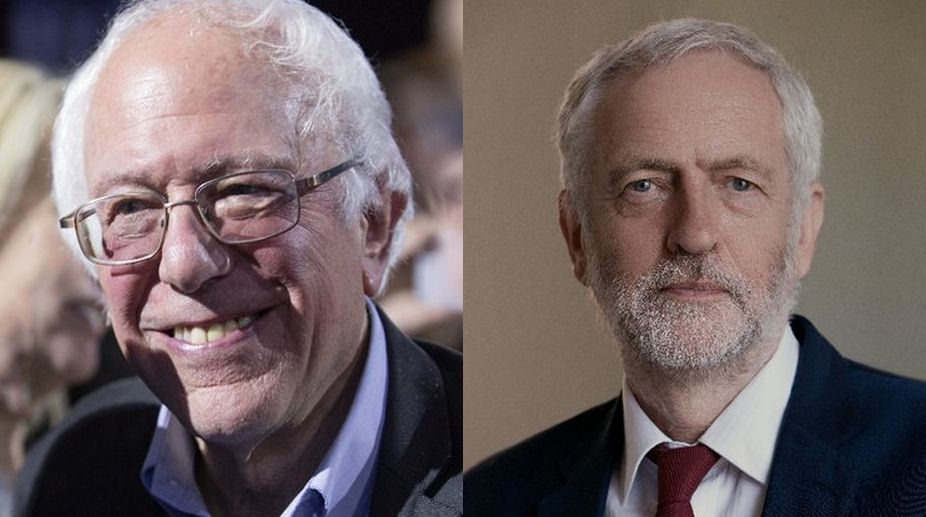In affluent Western democracies it once was a matter of pure common sense that every citizen was entitled to a decent minimum of publicly provided education, health care, shelter, old age support, workplace representation (unions), legal aid, environmental protection, and a public sector that treated utilities as something other than price-gouging opportunities.
After the long grim ordeal of the 1930s, modern governments by public acclaim were tasked to guide economies carefully away from the dangerous reefs that shortsighted capitalist enterprises cannot help but steer straight into over and over again.
Advertisement
Valuable lessons had been learned. Since the 1980s, and under a steady barrage of pro-corporate propaganda, those hard-won lessons were all but obliterated.
The very culprits who caused the Great Depression claimed all the credit for prosperity afterwards. Big firms and banks do not care about havoc that callous activities inflict upon the rest of us, especially if they make others pay the price, as they did after the 2008 bubble burst; Externalities; is the clunky word that economists use for the costs that powerful actors shift onto others, and those costs are so vast that some critics reckon few enterprises would earn a profit if they had to pay the true prices of production.
What the Right calls government waste is really mostly corporate waste, because government absorbs the costs of dealing with corporate pollution, workplace injuries, massive malfeasances, and bailouts. Only ;hard leftists;, apparently, are rude and crude enough to take notice.
Business titans, though, know very well that the state is needed to manage the daunting problems their enterprises generate: a ;gig economy; of jobs without benefits or security, ecological destruction, upward funneling of wealth, and recurrent economic crises because firms won;t pay workers a fair share of growth and also expertly evade taxes. Seven top US companies paid their CEOs more than they did federal taxes.
Boeing, Ford, Chevron, CitiGroup, Verizon, Chase, and General Motors currently pay no taxes at all on billions. The tame mass media behaves as though this situation is perfectly natural.
So one cringes when hearing newscasters refer to Jeremy Corbyn or Bernie Sanders as the “hard left”, as if these mild-mannered gents were rabid Stalinists. If they are ;hard; leftists, then Franklin Roosevelt was a wildeyed leftist for launching the New Deal that rescued American capitalism from itself. President Harry Truman must have been a secret Bolshevik for urging (unsuccessfully) a universal health care system in the late 1940s.
(At that same time a UK Labour Prime Minister did install National Health Care plus other reforms uplifting ordinary Brits.) Even Eisenhower seems a crazed leftist for remarking that only lunatics in the Republican Party yearned to drag the nation back to the gilded age miseries of the late 19th century (which is where the US under Trump is headed). Eisenhower acutely appreciated that the citizen-soldier army he commanded in World War II had wanted to return home to decent jobs and rising living standards.
John F. Kennedy, no radical, sounded like a staunch social democrat and, by today;s weird reasoning, a hard leftist.
If we start from the 1960s, not the Reagan-Thatcher 1980s, Corbyn and Sanders are the true conservatives, who want to restore a regime of shared and stable growth.
They want to ;conserve; and cultivate the best aspects of society, while today;s conservatives ~ exactly the sort Eisenhower deemed lunatics ~ want to steamroller every civic obstacle in the path of a market rigged by their paymasters.
The decades-long degenerative trend has been a siphoning of the share of income from wage-earners to capitalists.
If uninterrupted, it must climax with the super-rich seizing every penny and cheerily lending it out at usurious rates. This is the right wing;s idea of utopia, which, apart from being deranged, is unsustainable too. Only ;hard leftists; have the temerity to point it out. In the land of opportunity, average families, Bankrate.com reports, cannot afford a new car.
A Harvard report found 38 million Americans cannot afford housing ~ a 146 per cent rise since 2001. The average US employee earns less than in 1973 despite enormous increases in productivity. What spare cash do ordinary people have? In the UK the youth today spend four times more on rent than baby boomers did.
The tidal wave of hot money into UK property removes house ownership from reach. Income gains disappear into more rapidly rising housing costs, putting everything into landlord and banker pockets. Investors meanwhile relentlessly hunt for places for their resources to make even more money, which they regard as an inalienable right and is an aim that influences everything governments do. The circularity is perfectly dire.
The rich won;t invest in productive assets because firms won;t pay the wages to keep the economy expanding and make investment worthwhile. So money instead is force-fed into stocks and property via near-zero interest rates designed to bail out, guess who?, reckless investors. At the same time the wages of the top one per cent grew 167 per cent between 1973 and 2013, and their share of total wages doubled.
This occurred not because of “natural market forces”; but of policy decisions, especially the retraction of inflation-adjusted pay policies in the US and UK.
Should Corbyn or Sanders-led governments begin to correct these regressive trends and move towards (and even improve on) the 1960s policy situation, it will not amount to a ;hard left; socialism now anymore than it did fifty years ago. If these mild reformist programmes are “hard left,” then one must fairly identify the people who play so cavalierly with this term as the reactionary zealots they are.
(The writers are well-known commentators and the authors of No Clean Hands, Parables of Permanent War, and many other books)











